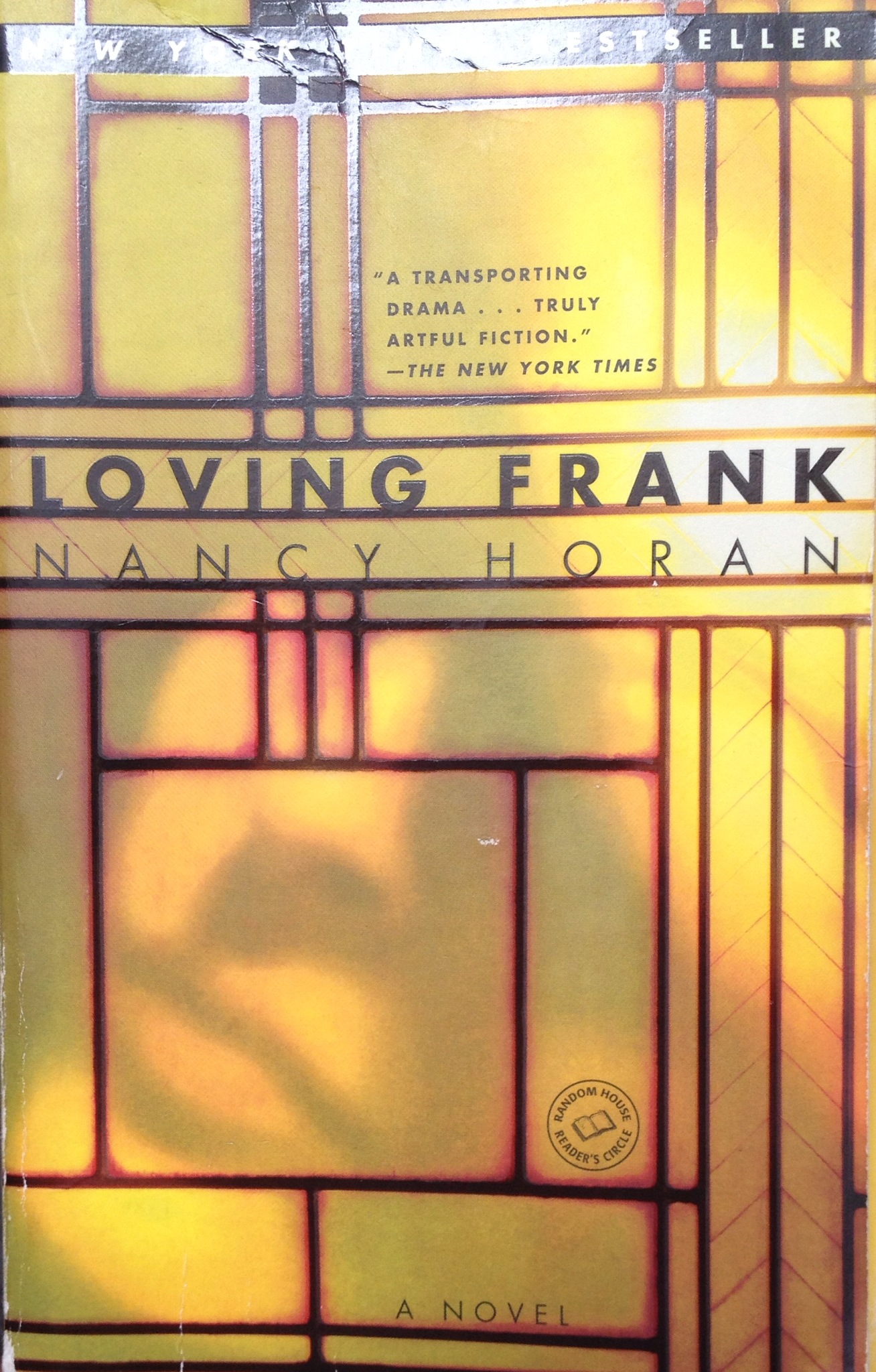My mom read this book a few years ago and loved it so it’s been on my list of books to read. I grabbed it at a half price sale at Open Books in June while searching for summer reading. It’s a fictional love story rooted in certain facts about an affair Frank Lloyd Wright had late in his career. The story is about the woman, Mamah Borthwick Cheney, mostly.
Wright led an interesting life for sure. I thought, before I read this book, that I knew a little of the history because I’d been on guided tours of his home and studio and Robie House. I didn’t know jack. His life certainly didn’t need any fiction to spice it up. The author, Nancy Horan, stuck to the facts. The fictional part comes mostly in the form of inhabiting the mind of Mamah and building out her character and also adding to Wright’s character through Mamah’s eyes. I think it worked well.
I’m not a heavy user of the love story. I have been known to get engrossed in a Jane Austen movie, but I rarely read love stories. I’ll have to look down through the list to see if I’m being truthful. The love story aspect of this book was definitely engrossing as was the character study of Mamah. The time and place, 1907-1913 America, was a stifling place for women and Mamah’s drive towards self-actualization against societal norms was great reading.
However, the Frank Lloyd Wright stuff was just as engrossing for me. I’m not sure how factual it was, but there were moments like this:
He gestured out towards the horizon, where a clear sky bordered prairie grasses as far as the eye could see. “Eventually, I fell under the the spell of that line out there. It was so simple: a huge block of blue on top of a block of gold prairie, and the quiet line between heaven and earth stretching endlessly. It felt like freedom itself to look at the horizon. I had been drunk on forms since I was a boy, and here was this simple line that expressed so much about this land.” (page 21)
Blown away. Wow.
And this, as Mamah contemplates why she loves Frank:
Mamah realized she cared for him for the very reasons he made other people squirm. He was fearlessly outspoken. And he *was* eccentric, but it was the kind of eccentricity she had come to admire in her father. Anyone as attuned as Frank was to nature’s order, anyone raised to reason outside the mainstream, was not going to be penned in very well by society’s rules. Her father had responded to the order of the natural world, too. He was more interested in the habits of wasps than the politics of Oak Park. He hadn’t cared a fig about fashion or the neighbors’ opinions about the goats he kept in their urban backyard. He was a “one-er,” as he called the stubborn nonconformists like himself, and he had nourished the same independence in his children. (page 35)
But ultimately there was the following realization, arrived at while Mamah was contemplating why Wright passed up a offer from the great Daniel Burnham to study at Paris’ Ecole des Beaux-Arts:
What courage for a young man. Mamah had thought when she heard the story. What confidence in his own artistic instincts. How often had she heard him say *I’d rather be honestly arrogant than hypocritically humble?* It took a superior attitude not to succumb to the rewards of joining the establishment.
Unfortunately, the attitude has become his persona: he believed it himself now. He had come to mistake his gift for the whole of his character. (page 300-301)
I don’t know how accurate these insights by Mamah are, but I’m aiming to find out. I’m visiting Taliesin with my mother soon and doing a kind of Frank Lloyd Wright weekend.
I have to, because I need to come to terms with the end of this book. The ending blew me away and messed me up for a few days. Read this book.
